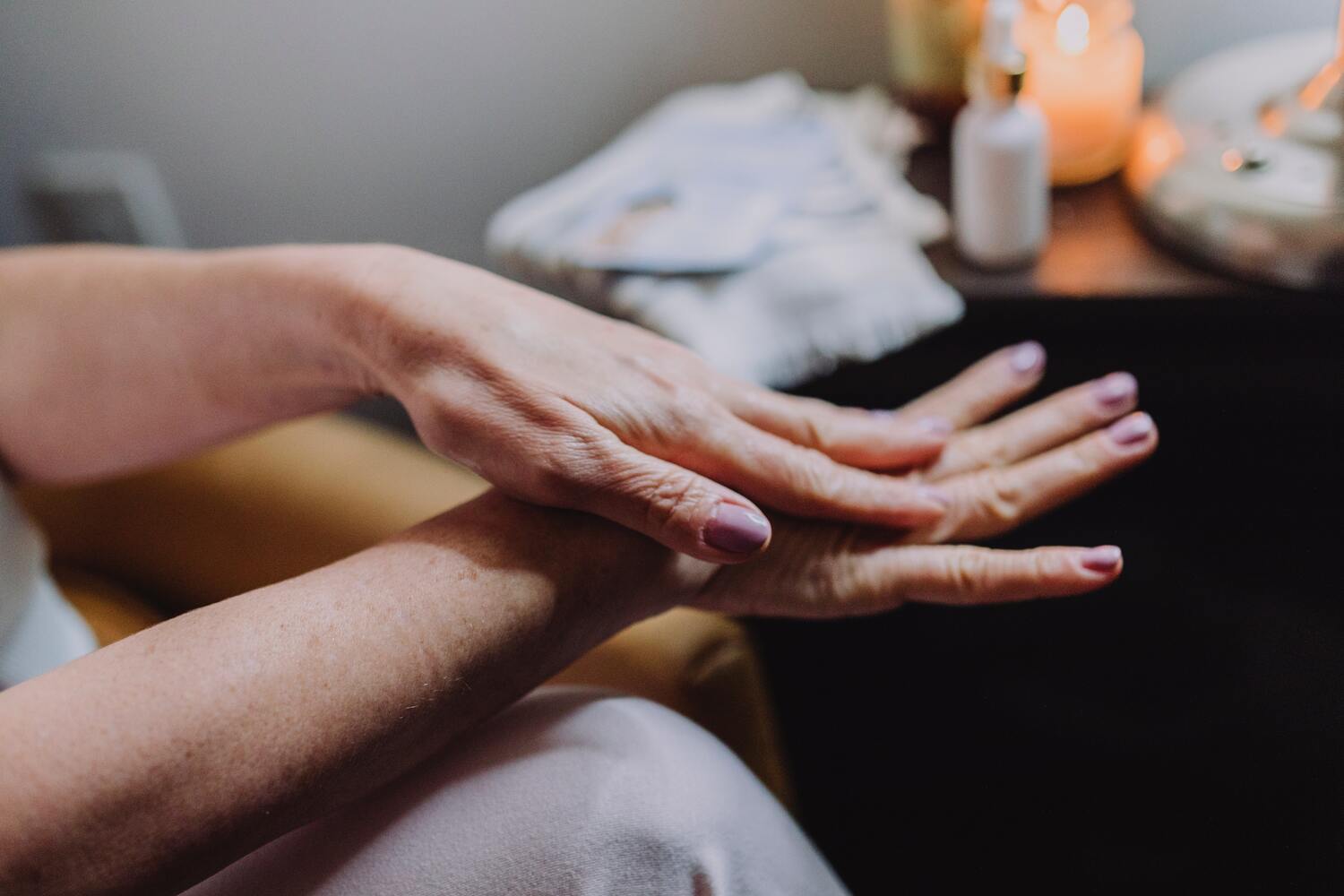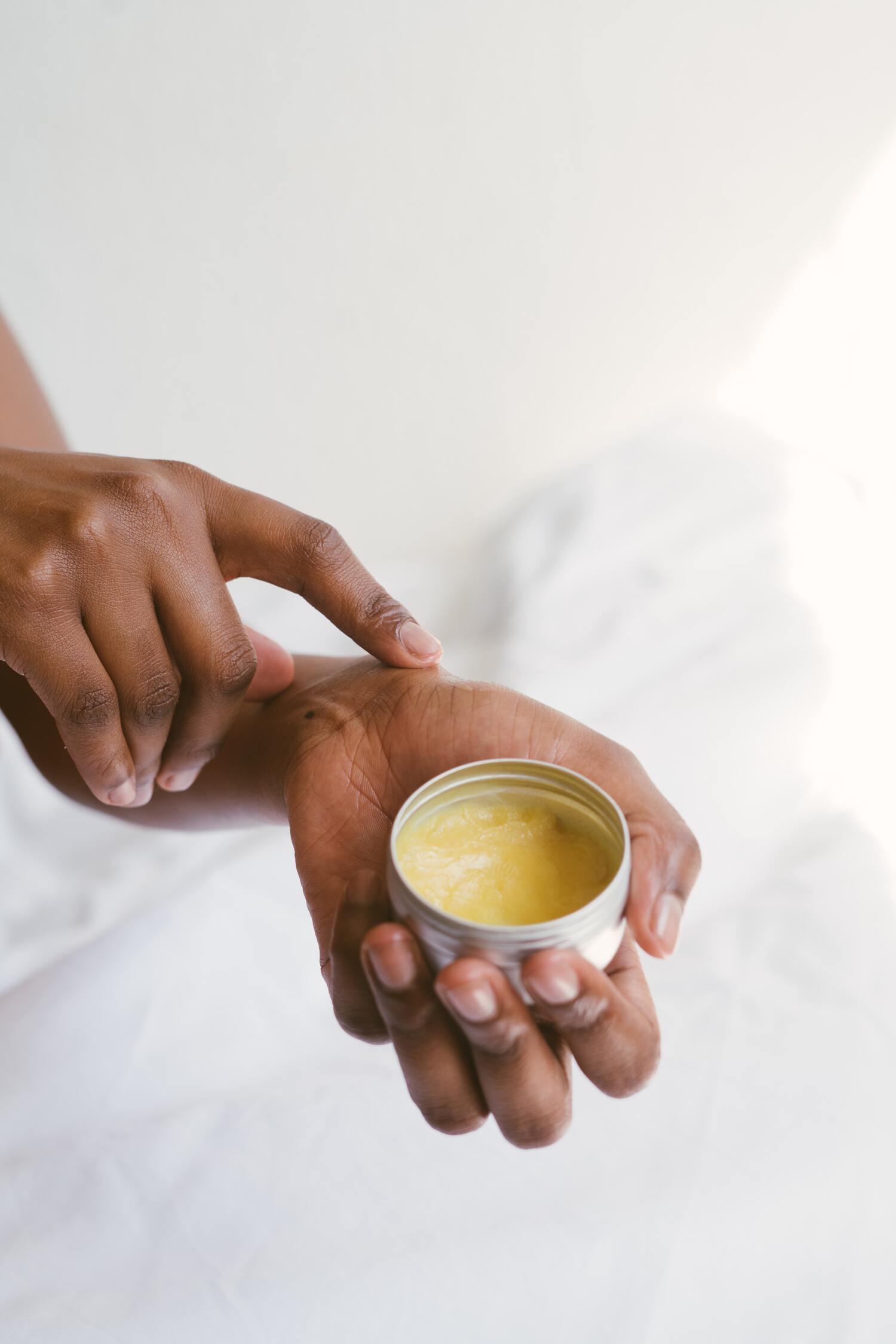There are many reasons why you might get dry hands, but they are mostly the result of environmental factors like the weather, things that come in contact with your skin, or other underlying health conditions.
Some people get dry skin on their hands as a result of an underlying medical problem. Dry hands may occur in people who have illnesses such as diabetes or diseases which decrease blood flow to the extremities. Other skin illnesses like psoriasis and eczema can also dry out the skin on your hands, and make it peel or split.
The weather can also be to blame when it comes to dry hands, especially during the winter. When temperatures drop, the air dries up, which stops your body from retaining moisture. Dry skin and hands are also caused by a lack of moisture in the air.
People who wash their hands often or use hand sanitizer, such as physicians or nurses, are also more likely to have dry hands than others. People who come into regular contact with chemicals and soaps, such as dishwashers and hairstylists, are also more prone to having dry hands.
Moisturizing with a hand cream seems like the obvious way to avoid having dry hands, but there are also some simple home remedies you can try as an alternative to moisturize your hands. Read on to find out more.

How to Prevent Dry Hands?
Having a clean eating diet and drinking enough water are both important for keeping your body hydrated, which helps in avoiding getting dry hands.
People who often wash their hands should apply moisturizer shortly afterwards. Dishwashers and others who operate in water-intensive areas may consider using gloves to protect themselves from overexposure to chemicals and soaps.
People who frequently have eczema or other skin diseases should also take precautions to avoid flare-ups. This may involve decreasing stress and adhering to all advice shared by doctors for treating these conditions.
Finally, reducing consumption of foods and beverages that dehydrate you, such as alcohol, can help you avoid dry skin as well.
How about trying these home remedies to help treat your dry hands?
Protect your skin barrier
Many commercially available moisturizers are intended specifically for use on your hands. Every time after you wash your hands, you should apply a moisturizing lotion to your hands to help restore the skin's natural moisture and have healthy skin.
The sun can dry out the skin, create burns, and trigger other more serious health concerns. All regions of the body, including the hands, should be protected from overexposure to the sun. Using a good sunblock on your hands can help you avoid letting your hands dry out in the sun.
Use Aloe Gel
Aloe vera gel can help with dry skin. If you have dry skin on your hands or feet, apply aloe vera gel to the afflicted area and cover with a sock or glove. You can try doing this before going to bed to leave the gel on overnight.
If you have dry skin on another part of your body, you can also use aloe vera gel generously and let it be absorbed by your skin for the same effects.
Get a room humidifier
Humidifiers are often used to help people who have difficulty breathing or other respiratory complications. But they can also help in preserving the skin from drying out in a dry climate or during the winter months. Humidifiers are often placed near the bed, but they can be used in any room in the house.

Avoid using harsh soaps that dry out the skin
Use a mild, fragrance-free cleanser to prevent irritating your skin and promote healing. Additionally, don't scrub your skin too hard with a washcloth. Avoid rubbing the skin when using a towel to dry your hands.
Tip: Use fragrance-free products instead of unscented products. The term "unscented" generally suggest the presence of a substance that masks the aroma of other chemicals, preventing you from smelling them. Unscented products might irritate skin that is already dry. Use fragrance-free products to prevent this.
Wear gloves
You can make your already dry skin worse if you wash dishes, garden, or put water on your hands. Gloves that prevent your dry skin from getting wet will speed up the healing process.
Cold air can also make dry skin worse, which means that wearing winter gloves in the cold weather can go a long way. Wear gloves to protect your hands, especially if you’re regularly working outside or going in and out of industrial refrigerators.
Ask a dermatologist for help
If your hands are extremely dry and painful and using moisturizer throughout the day has not helped, you may have hand eczema. This may mean that you need to consult a dermatologist and have a treatment plan.
Stay hydrated
It’s just as important to stay hydrated in the cold weather as it is in the heat. Your skin ismore prone to getting dry in the cold, so it’s important to not forget to drink water.
Dehydration can make your skin and hands flaky and dry. Since hydration is important for your skin to get the water it needs, try drinking several glasses of water every day, especially if you don't regularly do so.
You can also examine your urine to determine your hydration status. If your urine is clear or light yellow, it means you're well hydrated. If your urine is medium to dark yellow, or even darker in color, you should drink more water.
And what if I were to tell you about an App that checks your body's hydration level and can tell whether you’re hydrated or not without you having to examine your urine yourself?
Meet Vivoo! Vivoo is an App that allows you to check not only your water levels, but also your body’s levels of ketones, magnesium, calcium, and many other wellness parameters! All you need to do is urinate on your test and scan it to the Vivoo App.
The App will get you your results in 90 seconds, and you don’t need to send samples to the lab or check your urine color every time you go pee! After you take a test, the Vivoo App will provide you with personalized nutritional and lifestyle advice to help you improve your overall wellness! Try Vivoo today!















